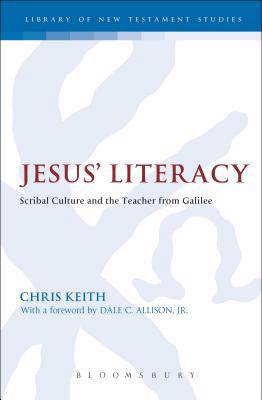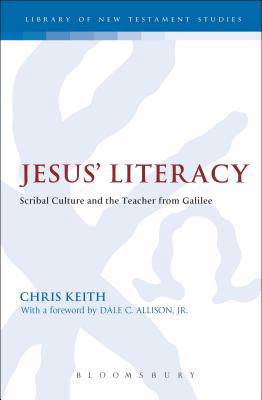
- Retrait gratuit dans votre magasin Club
- 7.000.000 titres dans notre catalogue
- Payer en toute sécurité
- Toujours un magasin près de chez vous
- Retrait gratuit dans votre magasin Club
- 7.000.0000 titres dans notre catalogue
- Payer en toute sécurité
- Toujours un magasin près de chez vous
Description
Jesus' Literacy: Education and the Teacher from Galilee provides the first book-length treatment of the literate status of the Historical Jesus Despite many scholars' assumptions that Jesus was an illiterate peasant or, conversely, even a Pharisee none have critically engaged the evidence to ask 'Could Jesus read or write?' Some studies have attempted to provide a direct answer to the question using the limited primary evidence that exists. However, these previous attempts have not been sufficiently sensitive to the literary environment of Second Temple Judaism, an area that has seen significant scholarly progression in the last ten to fifteen years. They have provided unnuanced classifications of Jesus as either 'literate' or 'illiterate' rather than observing that literacy at this time did not fall into such monolithic categories. An additional contribution of this work will is in the area of criteria of authenticity in Historical Jesus studies. Emphasizing plausibility and the later effects of the Historical Jesus Chris L. Keith argues that the most plausible explanation for why the early Church remembered Jesus simultaneously as a literate Jewish teacher and an illiterate Jewish teacher was that he was able to convince his contemporaries of both realities.
Formerly the Journal for the Study of the New Testament Supplement, a book series that explores the many aspects of New Testament study including historical perspectives, social-scientific and literary theory, and theological, cultural and contextual approaches. The Early Christianity in Context series, a part of JSNTS, examines the birth and development of early Christianity up to the end of the third century CE. The series places Christianity in its social, cultural, political and economic context. European Seminar on Christian Origins and Journal for the Study of the Historical Jesus Supplement are also part of JSNTS.Spécifications
Parties prenantes
- Auteur(s) :
- Editeur:
Contenu
- Nombre de pages :
- 240
- Langue:
- Anglais
- Collection :
- Tome:
- n° 413
Caractéristiques
- EAN:
- 9780567533975
- Date de parution :
- 23-05-13
- Format:
- Livre broché
- Format numérique:
- Trade paperback (VS)
- Dimensions :
- 156 mm x 234 mm
- Poids :
- 344 g

Les avis
Nous publions uniquement les avis qui respectent les conditions requises. Consultez nos conditions pour les avis.






